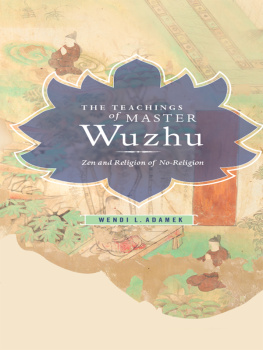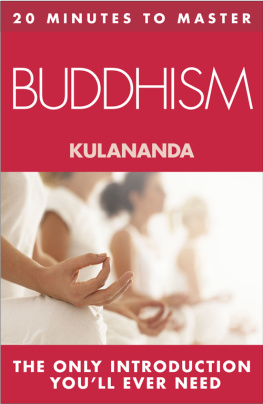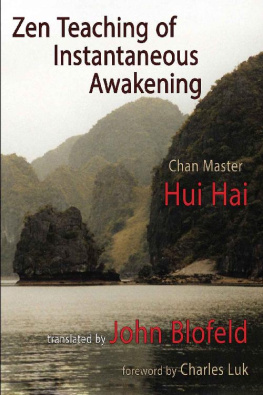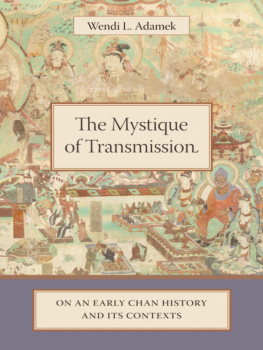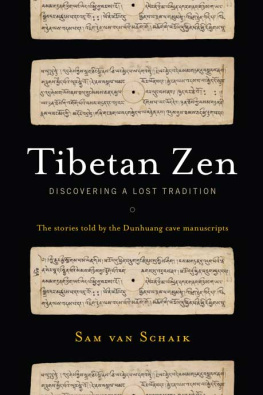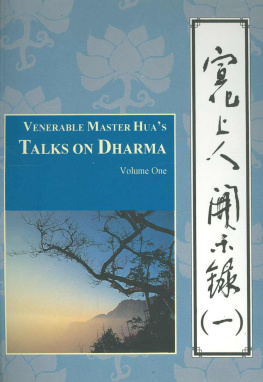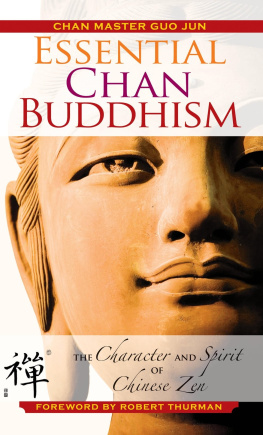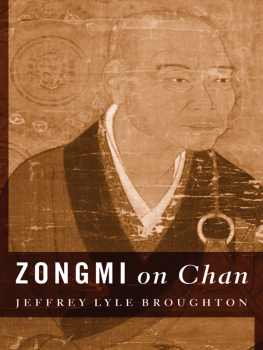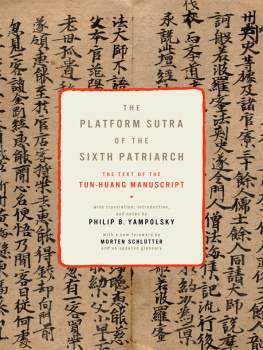THE TEACHINGS of MASTER
WUZHU
TRANSLATIONS FROM THE ASIAN CLASSICS
TRANSLATIONS FROM THE ASIAN CLASSICS
EDITORIAL BOARD
Wm. Theodore de Bary, Chair
Paul Anderer
Irene Bloom
Donald Keene
George A. Saliba
Wei Shang
Haruo Shirane
Burton Watson
COLUMBIA UNIVERSITY PRESS NEW YORK
COLUMBIA UNIVERSITY PRESS
Publishers Since 1893
New York Chichester, West Sussex
cup.columbia.edu
Copyright 2011 Columbia University Press
All rights reserved
E-ISBN 978-0-231-52792-7
Library of Congress Cataloging-in-Publication Data
The teachings of Master Wuzhu : Zen and religion
of no-religion / Wendi L. Adamek.
p. cm. (Translations from the Asian classics)
Includes translation from Chinese.
Includes bibliographical references and index.
ISBN 978-0-231-15022-4 (cloth : alk. paper)
ISBN 978-0-231-15023-1 (pbk.)
ISBN 978-0-231-52792-7 (electronic)
1. Zen BuddhismChinaHistory. 2. Wuzhu, Master, 714774.
3. Li dai fa bao ji. 4. Buddhist sectsChinaHistory.
I. Adamek, Wendi Leigh. II. Title. III. Series.
BQ9262.9.C5L5313 2011
294.385dc22 2010039929
A Columbia University Press E-book.
CUP would be pleased to hear about your reading experience with this e-book at .
References to Internet Web sites (URLs) were accurate at the time of writing. Neither the author nor Columbia University Press is responsible for URLs that may have
expired or changed since the manuscript was prepared.
Design by Shaina Andrews
For MY DEAR DOLPHINS , who piloted me through shark-infested waters
you know who you are
With warm thanks to the STANFORD HUMANITIES CENTER and THE TEAM at COLUMBIA UNIVERSITY PRESS , with special thanks to Leslie Kriesel and Michael Brackney for stellar editing and indexing
It is, perhaps, one of the earliest attempts to implement a religion of no-religion. However, even sympathetic Zen historians are tempted to dismiss the Lidai fabao ji as a self-promoting fiction. It was discredited soon after it was written in the late eighth century and still provokes occasional disparaging comments. The sharpest early critic was Shenqing (d. 814), whose views are discussed in . He voiced his objections in the Beishan lu (Record of North Mountain), his voluminous book on the current state of Buddhism in China.
The Lidai fabao ji was long considered lost. It was resurrected from among manuscripts accidentally discovered in 1900 in a hidden cache at the Mogao caves, near the Silk Road oasis of Dunhuang. By then there were few other traces of Chan Master Wuzhu (714774) and his group, the Bao Tang (Protect the Tang Dynasty) school of Jiannan (Sichuan). The text was probably compiled within a few years after Wuzhus death, which makes it one of the most immediate accounts of a Zen master in early Chan/Zen history. Its obscurity also means that it is one of the least reworked. The Lidai fabao ji gives us remarkably lively glimpses of Wuzhu and his interlocutors, both adoring and hostile. It also gives us a window into a world of complex religious and cultural battles, many of which continue to resonate today.
In this first chapter I discuss fundamental aspects of medieval Chinese Buddhist practice in order to convey something of the context from which Chan/ Zen emerged. In the second chapter I focus on Dharma transmission and its role in the contested account of Wuzhus life. Throughout the book, I highlight the significance of the practices of merit, repentance, precepts, and transmission, aspects of traditional East Asian Buddhism that have not always assimilated smoothly into contemporary contexts.
In the chapters I turn to the unusual aspects of Wuzhus teachings and community: formless practiceWuzhus version of no-religionand his validation of female practitioners. Through the Lidai fabao ji we get a view of the dynamics of a little-known group in the eighth century whose members were involved with some of the same issues that animate contemporary Buddhist practice groups: the consequences of abandoning set forms of practice and the roles of lay and female practitioners.
Wuzhus exclusion from the emerging Chan orthodoxy is an important theme in . There are multiple intriguing factors involved. Most provocative are the accusations by fellow clerics that the Bao Tang disciples misunderstood Chan practice and that they or Wuzhu himself lied about his having received transmission from the Korean Chan master Wuxiang. I also discuss Wuzhus controversial role from a broader perspective: the formless practice of the Bao Tang community placed limits on its institutional development, and thus could not contribute to the collective and competitive project of building a socially legitimate Chan network.
Another issue pertinent to the question of Chan orthodoxy is the uneven writing style in the Lidai fabao ji. Some passages are almost shockingly colloquial, while others are pastiches drawn from a variety of formal Buddhist sources. Wuzhus dialogues are rendered in a manner that suggests both scribbling down of lecture notes and dependence on a repetitive template. However, the Baolin zhuan (Transmission of the Baolin Temple), also of questionable literary merit, went on to become a cornerstone text in the development of an orthodox Chan genealogy, while Shenqings highly erudite Beishan lu remained relatively obscure. The literary weaknesses of the Lidai fabao ji were probably less determinative than its unreliable transmission account and the radical nature of its practices.
I argue that Wuzhu was in many ways ahead of his times, particularly with regard to his abandonment of Buddhist devotionalism and ritual and his willingness to include female practitioners in his informal community. However, the Bao Tang community does not seem to have developed effective alternative means to transmit their ethos. In the long run, it was the creation of Chan rituals and institutions that ironically or mock-violently pointed to their own groundlessness that proved most successful.
Before turning to specific features of medieval Chinese Buddhism, I would like to reconsider the often-raised question What do Buddhists do? In a Latin-derived English nutshell, they do soteriology. Soteriology means pertaining to salvation, linking soter, savior, and logos, word. Soteriology designates a field in which it is impossible to separate practice from philosophy, doctrine, ideology, or theory.
Soteriologies may have physical, institutional, and doctrinal forms that make them into recognizable self-sustaining networks: religions. A soteriology may also be individual and private. The word does not necessarily indicate a spiritual, therapeutic, or psychological orientation, but it does connote transformation. It is thus an appropriate designation for the Buddhist approach, which is founded on the quest for liberation from sufferingin other words, salvation.

